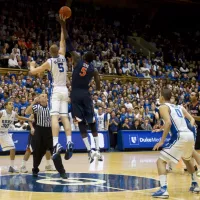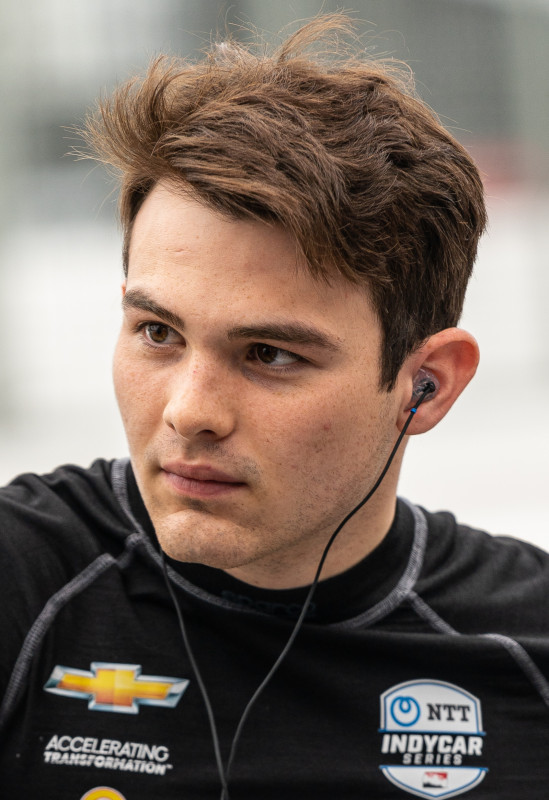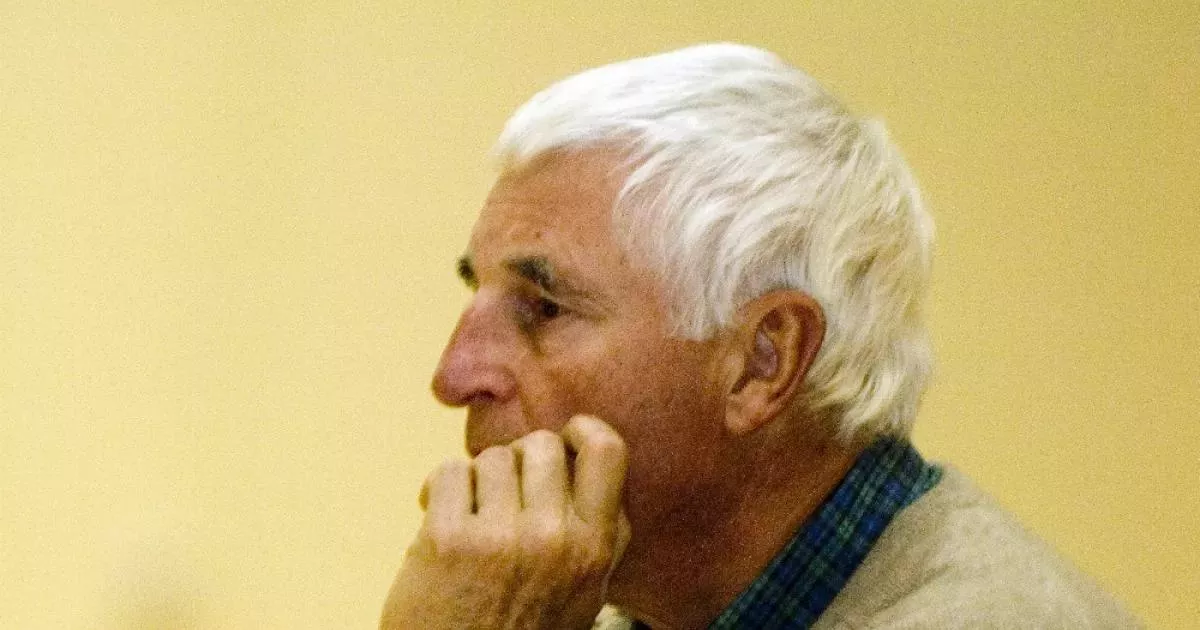Discover the career path of Bob Knight, from the first major opportunity to industry-changing achievements.
Robert Montgomery "Bob" Knight, nicknamed "the General," was a highly successful and controversial American college basketball coach. He is best known for his tenure at Indiana University, where he won three national championships. Knight was renowned for his demanding coaching style, discipline, and strategic brilliance. He achieved 902 NCAA Division I men's basketball wins, a record when he retired and sixth all-time upon his death. Despite his coaching achievements, Knight's career was also marked by volatile behavior, including confrontations with players, officials, and the media.
1958: Knight Plays at Ohio State
In 1958, Knight began playing basketball at Ohio State under coach Fred Taylor.
1962: Knight Coaches Junior Varsity Basketball
After graduating from Ohio State University in 1962, Knight coached junior varsity basketball at Cuyahoga Falls High School in Ohio for one year.
1963: Knight Takes Assistant Coaching Position
In 1963, while in the army, Knight accepted an assistant coaching position with the Army Black Knights.
1965: Knight Begins Coaching at Army
In 1965, Knight became the head coach of the Army Black Knights.
April 3, 1968: Wisconsin Coaching Vacancy
On April 3, 1968, Knight was one of seven candidates vying to fill the Wisconsin men's basketball head coaching vacancy after John Erickson resigned to become the Milwaukee Bucks' first-ever general manager.
1971: Knight Becomes Head Coach of Indiana Hoosiers
In 1971, Knight became the head coach of the Indiana Hoosiers.
1973: Big Ten Coach of the Year
In 1973, Bob Knight was named Big Ten Coach of the Year, marking the beginning of numerous Big Ten accolades.
1973: Blubaugh Becomes Head Coach at IU
In 1973, Douglas Blubaugh became head wrestling coach at IU.
1975: National Coach of the Year
In 1975, Bob Knight was unanimously selected as National Coach of the Year, marking a significant achievement in his coaching career.
1976: National Coach of the Year by the Associated Press
In 1976, Bob Knight was again honored as National Coach of the Year by the Associated Press, further solidifying his reputation.
1978: Head Coach of US National Team
In 1978, Bob Knight was named the head coach of the United States men's national team for the 1979 Pan American Games.
1980: Big Ten Coach of the Year
Bob Knight was named Big Ten Coach of the Year in 1980, adding to his list of achievements.
1981: Big Ten Coach of the Year
In 1981, Bob Knight received the Big Ten Coach of the Year award, acknowledging his ongoing success.
April 1984: Olympic Tryout Camp
In April 1984, Knight held a 72-player tryout camp to select the 12-man roster for the U.S. national team at the 1984 Summer Olympic Games. The team included Michael Jordan, Patrick Ewing, Chris Mullin and Knight's Indiana player and protégé Steve Alford.
1984: Blubaugh's Time as Head Coach Concludes
In 1984, Douglas Blubaugh's time as head coach at IU concluded.
1986: Three-Point Shot Adopted by NCAA
In 1986, the three-point shot was adopted by the NCAA. Although Knight opposed the rule change, it complemented his offense well by improving the spacing on the floor.
1987: Naismith Coach of the Year Award
In 1987, Bob Knight became the first recipient of the Naismith Coach of the Year Award, a prestigious honor in basketball coaching.
1989: National Coach of the Year Honors
In 1989, Bob Knight received National Coach of the Year honors from the AP, UPI, and the United States Basketball Writers Association, recognizing his coaching excellence.
1990: Hoosiers Dominate Big Ten
In 1990, the Indiana Hoosiers started a dominant run, posting 87 victories from 1990-91 through 1992-93, the most by any Big Ten team in a three-year span. They also captured two Big Ten crowns in 1990-91 and 1992-93.
1991: Induction into the Basketball Hall of Fame
In 1991, Bob Knight was inducted into the Basketball Hall of Fame, a testament to his significant impact on the sport.
1991: Big Ten Crown
In 1991, the Indiana Hoosiers captured a Big Ten crown. From 1990-91 through 1992-93, the Hoosiers posted 87 victories, the most by any Big Ten team in a three-year span.
1992: Big Ten Coach of the Year
Bob Knight was named Big Ten Coach of the Year again in 1992, recognizing his continued contributions.
1992: Reached Final Four
During the 1991-92 season, the Indiana Hoosiers reached the Final Four. From 1990-91 through 1992-93, the Hoosiers posted 87 victories, the most by any Big Ten team in a three-year span.
1993: Last Conference Championship
1993 marked Bob Knight's last conference championship. Knight continued to experience success with continual NCAA tournament appearances and a minimum of 19 wins each season throughout the mid and late 1990s.
1993: Big Ten Coach of the Year
In 1993, Bob Knight won the Big Ten Coach of the Year award, highlighting his consistent performance.
1994: Last Trip to Sweet Sixteen
1994 was Bob Knight's last trip to the Sweet Sixteen. Knight continued to experience success with continual NCAA tournament appearances and a minimum of 19 wins each season throughout the mid and late 1990s.
September 2000: Firing of Bob Knight
In September 2000, Bob Knight was fired from Indiana University after an incident with freshman Kent Harvey and numerous other complaints. This led to student outrage and protests.
2000: Knight's Tenure Ends at Indiana
In 2000, Knight's tenure as the head coach of the Indiana Hoosiers concluded.
2001: Donation to Texas Tech Library
In 2001, Bob Knight donated $10,000 to the Texas Tech library, and his wife donated $25,000, establishing the Coach Knight Library Fund.
2001: Knight Becomes Head Coach of Texas Tech
In 2001, Knight became the head coach of the Texas Tech Red Raiders.
2005: Additional Donation to Texas Tech Library
In 2005, Bob Knight donated an additional $40,000 to the Texas Tech library, further supporting the institution.
2005: Sweet Sixteen Appearance
In 2005, Knight led the Texas Tech Red Raiders to the Sweet Sixteen, marking the best performance by the team under his leadership.
2006: Texas Tech Defeats Ranked Teams
In 2006, under Knight, Texas Tech defeated two Top 10-ranked teams in consecutive weeks.
January 1, 2007: Passed Dean Smith For Most Career Victories
On January 1, 2007, Knight achieved his 880th career win and passed Dean Smith for most career victories.
November 29, 2007: A Legacy of Giving: The Bob Knight Exhibit
On November 29, 2007, the Texas Tech library honored Bob Knight's contributions with 'A Legacy of Giving: The Bob Knight Exhibit', recognizing his and his wife's financial support.
2007: Knight's Penultimate Season
The 2007-2008 season was Knight's penultimate season as a basketball coach before retiring.
January 16, 2008: 900th Career Win
On January 16, 2008, Bob Knight achieved his 900th career win in a game against Texas A&M, though he argued with referees during the match.
February 4, 2008: Retirement Announcement
On February 4, 2008, Bob Knight announced his retirement from coaching. His son, Pat Knight, was immediately named his successor at Texas Tech.
2008: Hired by ESPN
In 2008, Bob Knight was hired by ESPN as a studio analyst and occasional color commentator.
2008: Knight Retires from Coaching
In 2008, Knight retired partway through the season as the head coach of the Texas Tech Red Raiders; his son Pat Knight replaced him.
2009: Instructional Coaching DVD Libraries
In 2009, Bob Knight produced three instructional coaching DVD libraries on motion offense, man-to-man defense, and instilling mental toughness with Championship Productions.
November 15, 2011: Krzyzewski Surpassed Knight's Win Record
On November 15, 2011, Mike Krzyzewski surpassed Knight's win total as the coach with the most career victories.
November 2012: First Indiana Game Broadcast
In November 2012, Bob Knight broadcasted an Indiana men's basketball game for the first time, marking a change after previously refusing to do so. This was part of efforts by then-coach Tom Crean to get him to visit the school.
January 2, 2013: Boeheim Surpassed Knight's Win Record
On January 2, 2013, Jim Boeheim surpassed Knight's win total as the coach with the most career victories.
April 2, 2015: ESPN Contract Not Renewed
On April 2, 2015, ESPN announced that it would not renew its contract with Bob Knight.
March 11, 2021: Williams Surpassed Knight's Win Record
On March 11, 2021, Roy Williams surpassed Knight's win total as the coach with the most career victories.
Mentioned in this timeline

Basketball is a team sport played on a rectangular court...

Donald John Trump is an American politician media personality and...
Puerto Rico is a self-governing Caribbean archipelago and island that...
Sports Illustrated SI is an American sports magazine launched in...
CNN Cable News Network is an American multinational news media...

College basketball in the U S is governed by bodies...
Trending

33 minutes ago Official Pokémon LEGO Sets Launch Worldwide on Pokémon Day 2026!

33 minutes ago Scream 7 Premiere Sees Protests After Melissa Barrera's Firing; Cast Reunites.

33 minutes ago Stock market plunges after PPI inflation data; Dow, S&P 500, Nasdaq decline.
33 minutes ago US advises embassy staff to leave Israel amid Iran strike threats, urging speed.

34 minutes ago IndyCar Season Opens in St. Petersburg: O'Ward and Palou in Focus.

34 minutes ago Norah O'Donnell Back on CBS Mornings, Highlights Women in 'We the Women'
Popular

Jesse Jackson is an American civil rights activist politician and...

Barack Obama the th U S President - was the...

Susan Rice is an American diplomat and public official prominent...

XXXTentacion born Jahseh Dwayne Ricardo Onfroy was a controversial yet...

Michael Joseph Jackson the King of Pop was a highly...

Kashyap Pramod Patel is an American lawyer who became the...
